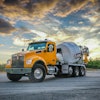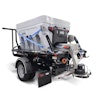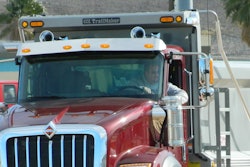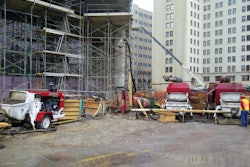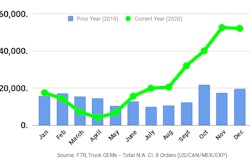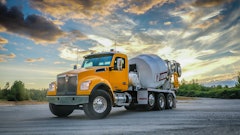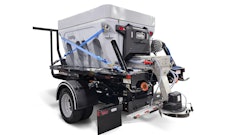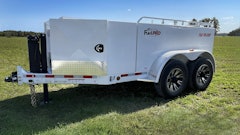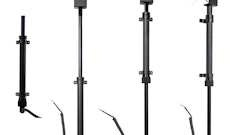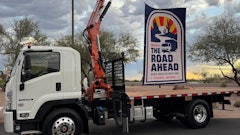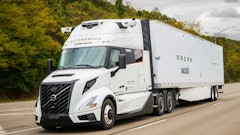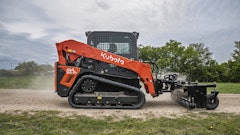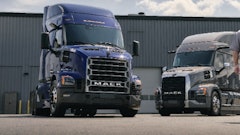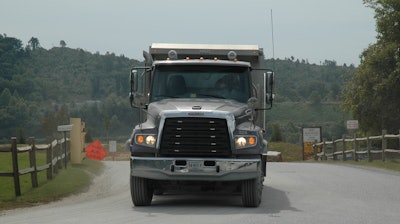
The dispatcher role is the cornerstone of a well-run construction logistics operation. Today’s dispatcher spends his or her time fielding calls for orders, finding haulers, and chasing down the status of deliveries. These operations have been managed using the same set of tools for generations: pen, paper, and phone calls. Much like the wave of technological advances that have revolutionized banking, manufacturing and retail, there is imminent change for how construction as an industry operates, and how dispatchers perform their jobs. This software-based revolution will empower dispatchers to be more effective, driving increased satisfaction among customers and haulers, and improved profitability for all members of the heavy construction value chain. These new tech-powered “digital dispatchers” will leverage the power of software platforms, B2B marketplaces, and mobile technology. These changes will elevate the dispatcher’s functional role and unlock new business value in construction.
The evolution of dispatching
Effective communication and coordination with truckers is at the core of a dispatcher’s day-to-day success. Innovations in logistics management, which have been pioneered in other industries by innovators such as Amazon and UPS, have been slow to make their way into the construction dispatcher’s toolbox. Not only have these innovations transformed the way businesses manage their logistics, but they have also raised the bar for our collective expectations of what the delivery experience should be as a society, resulting in higher expectations from end customers in all industries, including construction. These changes have only been accelerated by the COVID-19 pandemic and related social distancing restrictions. As a result, contractors are asking, “If I can track my pizza from the oven to my door, why can’t I do the same for the thousands of dollars’ worth of materials en route to my construction site?”
Changes that have been pioneered in other industries, including long-haul trucking, are coming to construction and changing the game. Cloud-based software, GPS tracking and mobile applications all contribute to an ecosystem in which parties are empowered by real-time tracking, multi-modal communications and data integration/connectivity. This ecosystem represents a digital platform where multiple industry participants connect and collaborate towards better efficiencies, higher asset utilization and increased profits. The digital dispatcher of the future will play a central role in this ecosystem.
The role of the digital dispatcher
One fundamental impact of this change is that the digital dispatcher will replace the time spent on manual processes and inefficient workflows with new, high impact activities. They will be part analyst-optimizer, part customer-service-delighter and part business manager, namely working toward:
- Optimizing workload distribution across a physical and virtual fleet using a centralized source of trucking and ensuring truckers are working at maximum efficiency
- Delighting customers by providing self-service tools to track and request orders, thereby freeing up time to provide a new level of customer experience
- Managing the logistics business which includes prevention of wait times, supply and demand forecasting, rate analysis and budgeting
These capabilities already exist at a basic level in some dispatch operations today. The newly empowered digital dispatcher will bring a fresh focus to these areas and, leveraging the transformative power of technology, use them to drive business value.
In transitioning from today’s dispatcher to the next, companies can expect improved performance across all their business operations through reduced waste/inefficiency and increased asset utilization. Tangible benefits will include increased amounts of material delivered through optimized scheduling and reduced wait time, increased profitability through consistent, predictable freight rates, and improved customer satisfaction through transparency and technology-enabled customer service.
Prepare for the next wave of digital dispatching
In order to plan ahead and get set up for success, companies should be armed with the right skills, tools, technologies, and organizational support. Dispatchers’ current skills will still be critical, including managing relationships and maintaining market knowledge and industry expertise. Companies that define a clear mandate and utilize fleet management technologies to empower dispatchers to take ownership of their impact on the business will be in the driver’s seat.
Key takeaways
The wave of technology innovation that has transformed logistics in other industries is coming to dispatching and construction. Tomorrow’s digital dispatcher will be empowered to leverage technology to dramatically improve efficiencies, reduce waste and enhance the customer experience. You can set a dispatcher up for success by setting the right mandate and preparing your organization to embrace the role of the 21st century digital dispatcher.
 Bart Ronan, CEO, TRUX Software
Bart Ronan, CEO, TRUX Software
